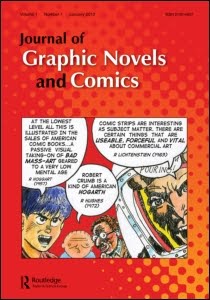Call for Panelists: Technology and the Comics (Feb. 19; May 27-30)
Advances in technology have fundamentally changed the look of the comics as well as how the reader engages with the comics. From the recent Microsoft Live Labs project that enables users to design infinite canvases, to the continued growth and popularity of web comics, technology is opening doors to both creators and consumers of the medium. At the same time, popular authors like Gregory “Seth” Gallant continue to innovate using the classical tools of the trade, while the “constrained comics” movement works to scale back the infinite possibilities of technologically enhanced comics. This atmosphere encourages both debate as well as reflection on the future of the comics as a medium. We are seeking papers that address the role of technology in shaping the mediums of comics, webcomics, graphic novels, and hybrid works. Possible topics include the following:
- Digital archiving and distribution
- The changing role of syndicated comics and the decline of newspapers
- Critical approaches to and innovations in web comics
- The shift from traditional illustration methods to digital methods.
- Scanlations and their impact on manga
- Applications and analysis of "infinite canvas" texts
- Constrained comics and other resistance authors/artists
- History and future of comic art technology
- Interactive comics and "motion comics"
- Innovative uses of illustration technologies
- Changes and challenges in writing relating to technologically enhanced comics
- Challenges of blending mediums (comics to video games, manga to anime, etc)
Graduate students, artists, writers, industry professionals, independent scholars, and academics are all encouraged to submit. We envision our panels as representing a variety of perspectives geared toward the broad audience of the Phoenix Comicon. Panels will last for one hour. Presenters will be asked to make a short presentation, followed by a moderated panel round table and a Q and A session with the audience. Presentations integrating audio and visuals are recommended. Please note any A/V needs along with your proposal.
Please submit a 300-500 word proposal to Dr. Kathleen Dunley at DrDunley@gmail.com by February 19, 2010. Proposals will go through a peer review process and those accepted will be notified via email.
More information on the Phoenix Comicon, including lodging information, can be found at our website: http://www.phoenixcomicon.com/.
Kathleen Dunley
University of Advancing Technology
2625 W. Baseline Rd
Tempe AZ 85283
Labels: academic, cfps, technology



